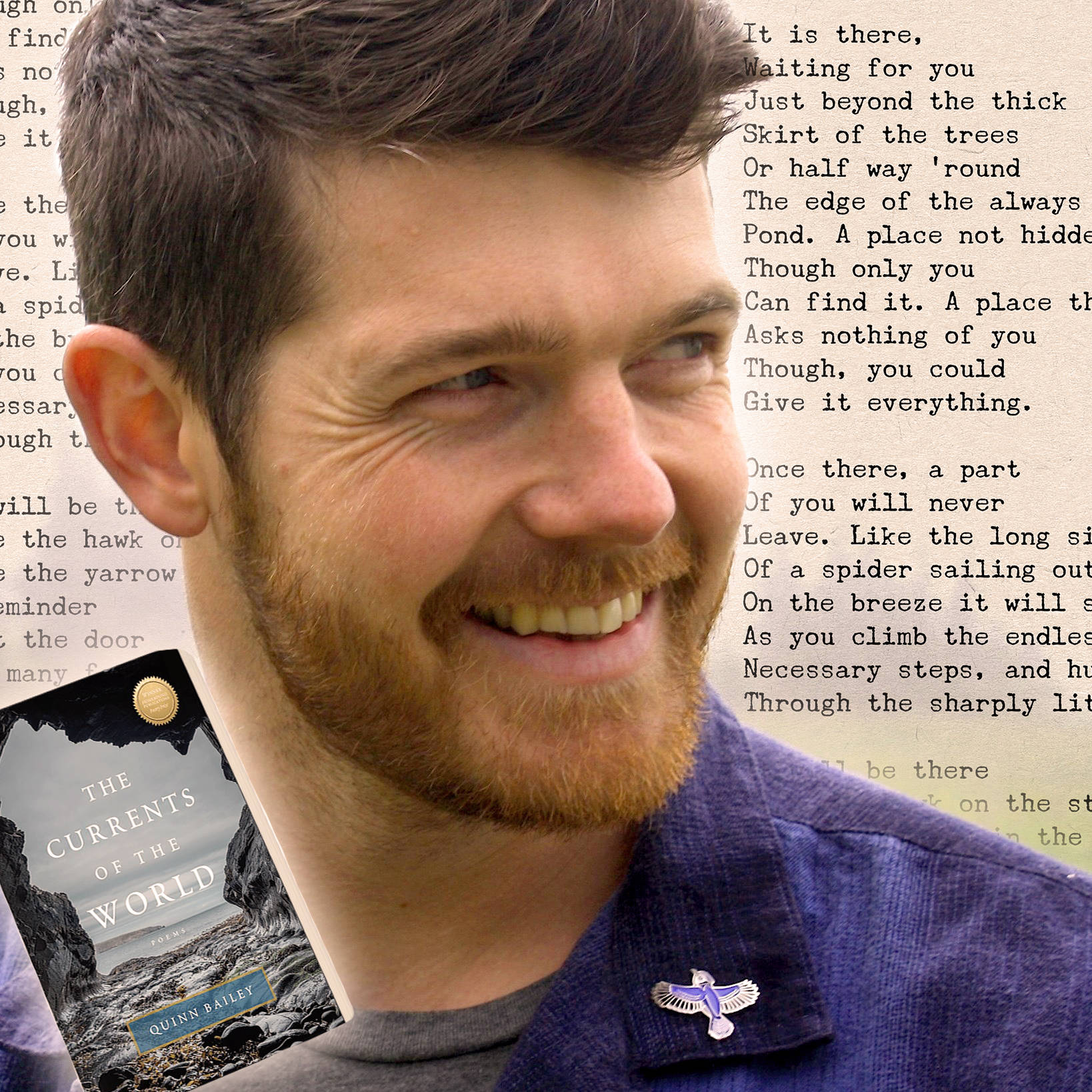Once Quinn Bailey realized how deeply nature moved him, the course of his life became clear.
A naturalist, wildlife tracker and teacher, Bailey has released his first book of poetry, “The Currents of the World,” via Homebound Publications.
“The central theme in my poetry is my love of nature and through my work, seeing the power that nature has to enact healing — how the outer landscape can affect the inner landscape,” he said.
The book is available at Darvill’s in Eastsound and online from Amazon and Barnes and Noble. Visit https://quinnbailey.com/ or his social media sites for a video of him reading from his collection.
Bailey grew up on Orcas Island, where his mother Eirena Birkenfeld still lives. After graduating from high school, he moved to San Francisco and later traveled around Europe. After taking a solo bike trip from the San Juans to Los Angeles, he had a realization.
“On that trip, I rediscovered my love of nature,” Bailey said. “That’s the thing I have been most consistently passionate about. I had an epiphany: Oh, that could be a career.”
He enrolled at the Wilderness Awareness School in Duvall, Washington.
“The instructors there were really good about using poetry to frame the experience,” he said.
Five years ago, he became a naturalist teacher for the organization. Last summer, Homebound Publications accepted his manuscript of poetry, releasing it online this spring and in print on Aug. 11.
According to the book description, “In his first collection of poetry, Quinn Bailey has crafted a book that is meant to live in your backpack, to be carried with you, as [a] companion, field guide and friend as you traverse the rich wilderness of life. Inspired as much by the words of poets like Mary Oliver and Jim Harrison as by the songs of the trees and the birds, the poems within arise from a deep love of the natural world and call attention to the power an outer landscape has — to be all at once, mirror, compass, and divination tool for our inner landscape.”
Other poets who have influenced Bailey are David White, Sharon Olds and Mary Oliver.
“Poetry on some level allows us to feel like we are less alone in the world. You read something that resonates with you and there is a sense of, ‘Oh, I didn’t realize others felt that way. I’ve been feeling that but didn’t have words for it,’” he said.
Bailey is now back on Orcas, where he will be writing and spending time on his mom’s property. In addition to wildlife tracking, his passions are dance and naturalist studies, particularly birds.
“I love to go down to Buck Bay by my house and watch the bird drama unfold,” he said. “This is a transition period but I am excited to spend more time on my writing,” he said.
Bailey said readers can be intimidated by poetry because it’s something “we are supposed to analyze and figure out what it means.”
“But you need to trust your own taste and instinct in it. You are the best expert for your own taste. There is so much poetry out there but there is such a small, unique slice that people like,” he said.
When working on his own poetry, the process is different each time.
“Some poems you really have to work at. It’s like trying to mine for something. But then there are some that are just waiting and want to come through into the world. Those are the ones I am most excited about. I feel like I’m handler — it has a life of its own,” Bailey said.



